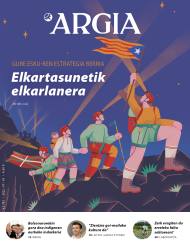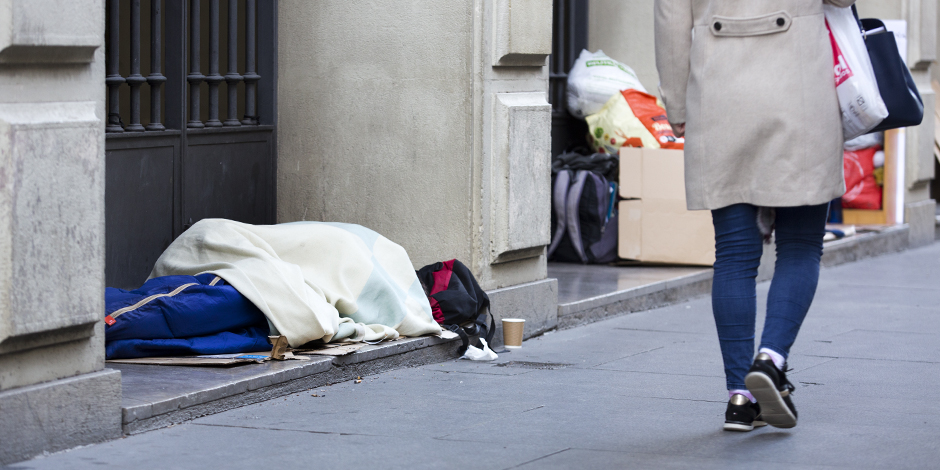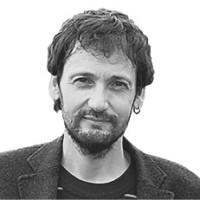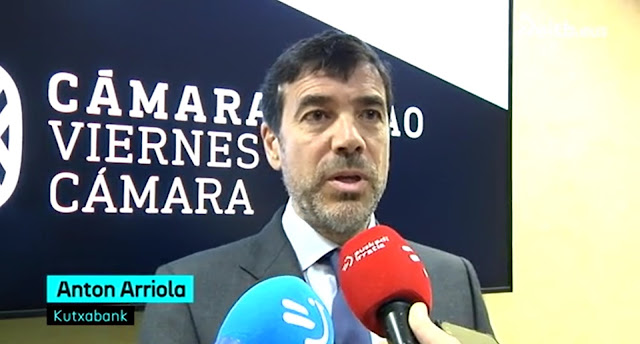Irish and us
The Irish have lost their language and won English. What else have you gained? What else to lose? I've spent a week in Dublin, living and analyzing Bloomsday, a festival based on James Joyce's vibrant novel Ulysses.
I have previously been in Ireland, north and south, east and west, in the 20th century and in this 21st century. In most cases in order to analyze what can/could be brought from us. I have no clear answer. Ireland is a beautiful country, which has suffered a lot in contemporary history, and maybe that's why you find lovely people there. I've made my best friends. I would like to know where it is going at the moment. Why it is still in a critical situation.
The Irish entered the peace processes in anticipation of the Basques. Republicans were looking for independence and unity across the island, and we were often repeated that hope was on population growth, that is, Republicans' growth was faster. Now they've won in votes, but Brexit has stuck in the middle. New governments cannot be set up. The limit dividing Ireland cannot be removed. We cannot advance in the dream unit.
"Patrick J welcomed us. The owner Murphy, hearing that we were Basques, put the novel 'Ulises' in Basque on the counter"
Meanwhile, in the South State, which a century ago is an independent republic, things have taken their own path. Own? I'm not sure. It is possible that here too Sinn Féin will prevail in the forthcoming elections, that is what is quoted in it. But what kind of society will the supporters of the United Republic find if they come to government? Are they going to be able to move towards the goals at once?
In Dublin, the capital of the former hibernia has been considered. The Hibernian metropolis is known in modern literature. These days James Joyce is an omnipresent referent celebrating his Ulysses in the successful and institutionalized Bloomsday. On 16 June, a whole day, Dublins Leopold Bloom are trying to repeat what they had lived on their streets. We wanted to try what we found on their way.
Ulysses is Dublin, but far from it, James Joyce wrote the novel in Trieste, Zurich and Paris. He left Ireland at the age of twenty-two, claiming his atmosphere was drowning. When all of Europe was at war, Joyce began writing the novel for seven years. Someone reproached him for fleeing to neutral Zurich (“what he did in wartime”) and the writer replied: “I wrote Ulysses and what did you do?”
In the fifth chapter of the novel, Leopold Bloom, aware that his wife usually meets with a lover at both's house to attract his wife Molly, plans to buy and give a scarce lemon soap in a famous Dublin pharmacy. A century after the novel was published, we found Lincoln Place's Sweny's Pharmacy. Patrick J welcomes us with hospitality. The owner Murphy, hearing that we were Basques, has put on the counter the novel Ulises in Basque, in an edition translated by Xabier Olarra and published by Rana. After admiring our admirable surprise, he takes the guitar and sings us the melancholy song. Gaelikoz. “The wind coming from the vicinity of the mountain brings new people with it.”
Exciting. But Ireland was lost and on the streets of Dublin many children of neoliberalism, many, are now Dublins, from historic O’Connell Street to Grafton Shopping.
Dublindar is a collection of stories in English written by James Joyce.
Bidali zure iritzi artikuluak iritzia@argia.eus helbide elektronikora
ARGIAk ez du zertan bat etorri artikuluen edukiarekin. Idatzien gehienezko luzera 4.500 karakterekoa da (espazioak barne). Idazkera aldetik gutxieneko zuzentasun bat beharrezkoa da: batetik, ARGIAk ezin du hartu zuzenketa sakona egiteko lanik; bestetik, egitekotan edukia nahi gabe aldatzeko arriskua dago. ARGIAk azaleko zuzenketak edo moldaketak egingo dizkie artikuluei, behar izanez gero.
A few weeks ago, on Diputación Street, in the centre of Vitoria-Gasteiz, two men threw a homeless person off the small landing outside the place where he slept. In addition to being thrown away, a metal railing was immediately placed in front of the lonja. Although the place... [+]
The lights of the theater are on. Discreetly, I’m walking on the steps: the school performance is about to begin. The young men run to their seats, full of life and joy. The retreat has the taste of liberation, but this feeling of freedom speaks Spanish or French. This... [+]
Wikipedian bilatu dut hitza, eta honela ulertu dut irakurritakoa: errealitatea arrazionalizatzeko metodologia da burokrazia, errealitatea ulergarriago egingo duten kontzeptuetara murrizteko bidean. Errealitatea bera ulertzeko eta kontrolatzeko helburua du, beraz.
Munduko... [+]
Egypt ' s urban planning plan for the Gaza Strip has recently been expanded. A drawing shows the streets, buildings and imagery of the future on a reality that still smells of shrapnel and explosives. The urban planning proposal, used as another bomb shot. Individual house... [+]
Bizitza erdigunean jartzeko abagunea ikusi genuen feministok zein ekologistok Covid-19 pandemia garaian. Ez ginen inozoak, bagenekien boteretsuak eta herritar asko gustura itzuliko zirela betiko normaltasunera. Bereziki, konfinamendu samurra pasa zutenak haien txaletetan edo... [+]
Segurtasun falta dagoen irudipena handitu dela azaldu du Eustaten azken txostenak. Gurean, Trapagaranen, Segurtasuna orain, delinkuenteen aurka manifestaziora deitu dute herritar batzuek.
Bi izan dira sentsazio hori zabaltzeko arrazoiak. Batetik, udalak Udaltzaingoaren... [+]
There are those who subscribe to portals to sell their homes because they would like to buy a house. From time to time they even make appointments to see the houses, and I am sure that the seller knows that these people will not buy the house, not because they find it in the... [+]
Haurtzaroaren amaiera eleberri distopikoa idatzi zuen Arthur Clarkek, 1953. urtean: jolasteari utzi dion gizarte baten deskribapena. Eta ez al da bereziki haurtzaroa jolasteko garaia? Jolasteko, harritzeko, ikusmiratzeko eta galdera biziak egiteko unea. Ulertzeko tartea zabalik... [+]
The writer Juan Bautista Bilbao Batxi worked in a boat and sent the chronicles of his travels to the newspaper Euzkadi. Thanks to this, we have interesting chronicles in Basque from around the world from the beginning of the 20th century. In June 1915, he made his stop in... [+]
From linguistics or glotophobia and, of course, hatred against Basque, we have often seen our Basque become the dandruff of all sticks. Last of all, the president of Kutxabank, Anton Arriola, has been shaking our language and giving us galantas.The President of Kutxabank,
... [+]
Do not look for this connection from Ezkio or Altsasu, let alone crossing the Ebro River through Castejón. The connection, or rather the connections, between the Basque Y and the AVE of Navarre is already a reality. It is these links in the plural that should concern us and... [+]
Don't make a fuss, don't confront, don't victimize... and obey. As oppressed subjects, in this case as Basques, we talk, how many times have we had to listen to them? Ironically, two years ago, at the Euskalale Independentiston Meeting, Esne Arzallus said: "We have arrived here,... [+]
Aurten "Israel Premier Tech" txirrindularitza talde israeldarra ez da Lizarraldeko Miguel Indurain Sari Nagusia lasterketara etorriko. Berri ona da hori Palestinaren askapenaren alde gaudenontzat eta munstro sionistarekin harreman oro etetea nahi dugunontzat, izan... [+]
Intsumituek denbora luzez egindako borroka gogorra eta mingarria izan zen, baina irabazi zuten, eta garaipen hura behin betikoa izango zela uste genuen, atzera bueltarik gabea. Baina badirudi, politikari batzuen ahotik aterata, eskalada militaristari gorazarre egin eta berriz... [+]





















